Mario Bunge - Studies on Mario Bunges Treatise
Here you can read online Mario Bunge - Studies on Mario Bunges Treatise full text of the book (entire story) in english for free. Download pdf and epub, get meaning, cover and reviews about this ebook. City: Amsterdam - Atlanta, year: 1990, publisher: Rodopi, genre: Science. Description of the work, (preface) as well as reviews are available. Best literature library LitArk.com created for fans of good reading and offers a wide selection of genres:
Romance novel
Science fiction
Adventure
Detective
Science
History
Home and family
Prose
Art
Politics
Computer
Non-fiction
Religion
Business
Children
Humor
Choose a favorite category and find really read worthwhile books. Enjoy immersion in the world of imagination, feel the emotions of the characters or learn something new for yourself, make an fascinating discovery.

- Book:Studies on Mario Bunges Treatise
- Author:
- Publisher:Rodopi
- Genre:
- Year:1990
- City:Amsterdam - Atlanta
- Rating:3 / 5
- Favourites:Add to favourites
- Your mark:
- 60
- 1
- 2
- 3
- 4
- 5
Studies on Mario Bunges Treatise: summary, description and annotation
We offer to read an annotation, description, summary or preface (depends on what the author of the book "Studies on Mario Bunges Treatise" wrote himself). If you haven't found the necessary information about the book — write in the comments, we will try to find it.
Studies on Mario Bunges Treatise — read online for free the complete book (whole text) full work
Below is the text of the book, divided by pages. System saving the place of the last page read, allows you to conveniently read the book "Studies on Mario Bunges Treatise" online for free, without having to search again every time where you left off. Put a bookmark, and you can go to the page where you finished reading at any time.
Font size:
Interval:
Bookmark:
STUDIES ON MARIO BUNGE'S TREATISE
POZNA STUDIES IN THE PHILOSOPHY OF THE SCIENCES AND THE HUMANITIES
VOLUME 18
Editors

Advisory Committee

The principal task of the book series "Pozna Studies in the Philosophy of the Sciences and the Humanities" is to promote the development of the philosophy which would respect both the tradition of great philosophical ideas and the manner of philosophical thinking introduced by analytical philosophy. Our aim is to contribute to practicing philosophy as deep as Marxism and as rationally justified as positivism.
Address of the editors:
Krzysztof astowski
Department of Philosophy
A. Mickiewicz University
Szamarzewskiego 89c
60-569 Pozna, Poland
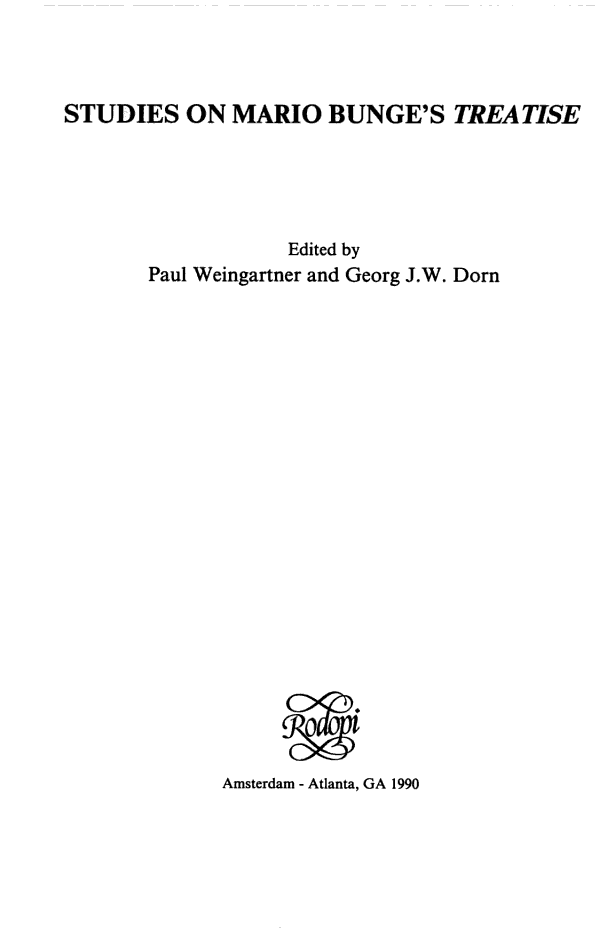
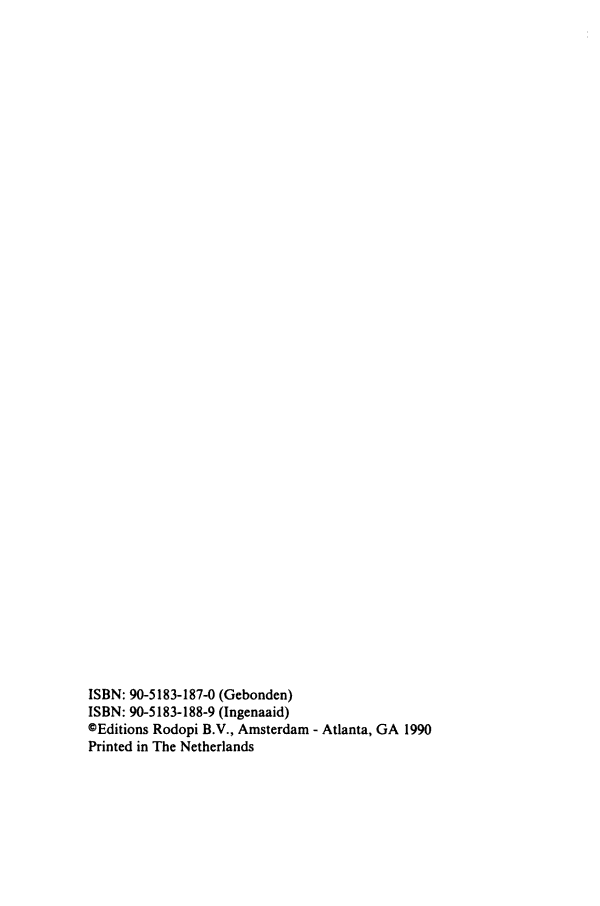
PREFACE
Our project to publish a volume of studies on Mario Bunge's Treatise on Basic Phi losophy was started in December 1987 on the initiative of Professor Leszek Nowak, who had invited us to become guest editors of this volume in his series "Poznan Studies in the Philosophy of the Sciences and Humanities", published by Rodopi.
We readily agreed because we shared and still share his opinion that it is a great event in contemporary philosophy that an eminent philosopher such as Mario Bunge is trying to combine specialised philosophical disciplines to a great synthesis on a high technical level; and that this event, although it is still going on, should be described and discussed in detail so that philosophers as well as theoretical scientists become more acquainted with it than they are now. We hope that our volume will be an important step in this endeavour by offering a forum of criticism and debate on Mario Bunge's Treatise.
We thank our authors for their cooperation and Mario Bunge for taking part in the debate himself by replying to each contribution. We also thank Mrs. Gabriele Kbrunner-Krisch for typing this volume in her customary efficient manner.

I
SEMANTICS
Chapter 1
LANGUAGE
ON THE CONCEPT OF 'A LANGUAGE'
Mike Dillinger*
Quel est l' objet la fois integral et concret de la
linguistique? La question est particulirement
dificile; nous verrons plus tard pourquoi; bornons-
nous ici faire saisir cette difficult.
(Saussure, 1916. p. 23)
The concept of 'a language' inhabits the intersection of particular sciences and ontology, the realm of theories that are empirically untestable in any direct way (Bunge, 1977). Being at this intersection, it has been seen as not clearly in the domain of either linguistics or philosophy, or in the domain of one to the exclusion of the other. As a result, the concept of 'a language' has not been dealt with as systematically as, say, the phonology of a given language or the even more general concept of 'a system'. The consequences are clear: linguists' theory is not developed as explicitly as their practice; the study of language and languages is fragmented, each subspecialty proceeds quite autonomously from the others; theoretical writing and textbooks present the field as a potpourri of activities without any explicit relations between them; and mutually exclusive "approaches" proliferate, each championing the study of one or a few fragments of the whole.
All of these problems which constitute the crisis facing modern linguistics (Bunge 1984) have a common cause: at present, there is quite clearly no foundationally adequate concept of 'a language'. We talk about the "global" theory and "parochial" subtheories using different metalanguages, which almost ensures problems of coherence between them and creates difficulties for their joint development. Each branch of linguistics seems to have its own theory of what 'a language' is: for phonology, it's "a system of sounds"; for syntax, "a set of sentences"; for psycholinguistics, "a process of manipulating mental representations"; for sociolinguistics, "a means of social interaction"; for neurolinguistics, "a brain process", etc.
The fulcrum of development of any science is a systematic epistemology, but the lever with which a field can be redirected has to be forged in philosophy and milled in the field itself: it is the conceptualization of the object of inquiry. If there is no overarching framework or global theory within which each kind of research can be seen as an indispensable contribution to a deeper understanding of the whole, then the more each subfield progresses, the more difficult it becomes to relate it to the others, and to explain just how each contributes to an understanding of the same object of inquiry. Thus, the question of how all of the opposing "parochial" viewpoints can be synthesized to achieve some sort of "higher unity" hangs like a sword of Damocles over the linguist's head. Of course, the point here is not to defend some neopositivist notion of a rigid "unity of science", but simply to make it possible to explain precisely how there is some object of study common to all of the "language sciences".
* I am grateful to my colleagues Prof. David Blitz (Philosophy, Central Connecticut State University), Mine. Janyne M. Rahming (Qubec Ministry of Education), Dr. Jean-Pierre Marquis (REHSIS, Paris), Prof. Konrad Koemer (Linguistics, Ottawa) and especially to Prof. Mario A. Bunge for their helpful discussion and pointed criticism of the ideas presented here.
Contemporary linguistics has come to this juncture by way of neglect; a neglect with a neopositivist etiology. Philosophico-scientific concepts developed slowly under positivism, partially because their elaboration requires training in both the specific science and philosophy, in particular training in a scientific philosophy that envisions close ties between the two. Neither this kind of training nor this sort of philosophy were available. In current philosophy, however, the prospects are not so grim. Bunge (1983a,b) has developed a philosophical system in which science and philosophy are intimately related epistemological activities requiring both the philosopher of science and the theoretical scientist to be trained in the field of the other (cf. Bunge 1980, pp. 237-240). Further encouragement is provided by the fact that Bunge (1977) has characterized the no-man's-land between science and ontology, and has both defended and developed general systems theory (GST) as a metaphysics and metalanguage for discussions in this domain (Bunge 1979). Moreover, the term "system" has become a commonplace in linguistics and other fields (although with no consensual definition), in particular for definitions or global theorizing, so GST provides a widely-used metalanguage which can serve to relate linguistic systems to social, cultural, conceptual and other systems. In sum, Bunge's emergentist systemism and scientific realism provide optimal philosophical tools for the present purposes (see 1979, Ch. 6). We propose here to resuscitate and revitalize Saussure's octogenarian program for linguistics, creating a modem neo-Saussurean enterprise by transplanting more recent philosophical and psychological components to replace their weak or stillborn counterparts in the original. In so doing, we will add further assumptions to the general philosophical system Bunge proposes, sketching an explicit bridge between philosophy of science and linguistic theory, which will illustrate the heuristic value of his view of science and philosophy as mutually reinforcing activities. Fortunately for our present purposes, there are enough similarities between Saussure's view of language and the scientific worldview presented in Bunge's Treatise (1974-1989) to suggest a very fruitful synthesis of the two.
Next pageFont size:
Interval:
Bookmark:
Similar books «Studies on Mario Bunges Treatise»
Look at similar books to Studies on Mario Bunges Treatise. We have selected literature similar in name and meaning in the hope of providing readers with more options to find new, interesting, not yet read works.
Discussion, reviews of the book Studies on Mario Bunges Treatise and just readers' own opinions. Leave your comments, write what you think about the work, its meaning or the main characters. Specify what exactly you liked and what you didn't like, and why you think so.

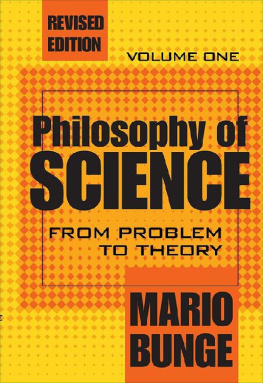
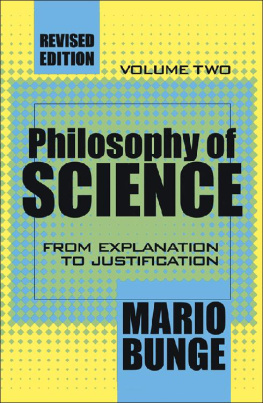
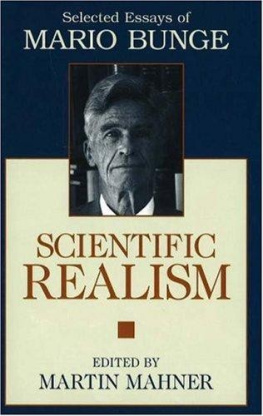
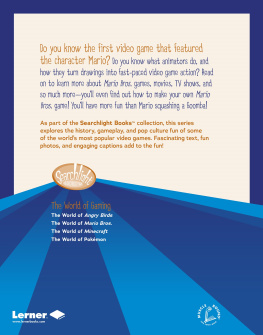
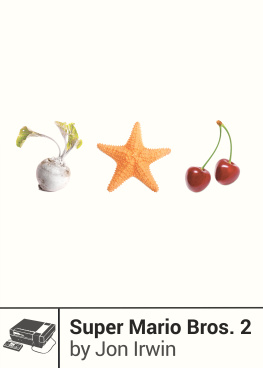
![Mario Vargas Llosa [Mario Vargas Llosa] - Captain Pantoja and the Special Service](/uploads/posts/book/142220/thumbs/mario-vargas-llosa-mario-vargas-llosa-captain.jpg)

